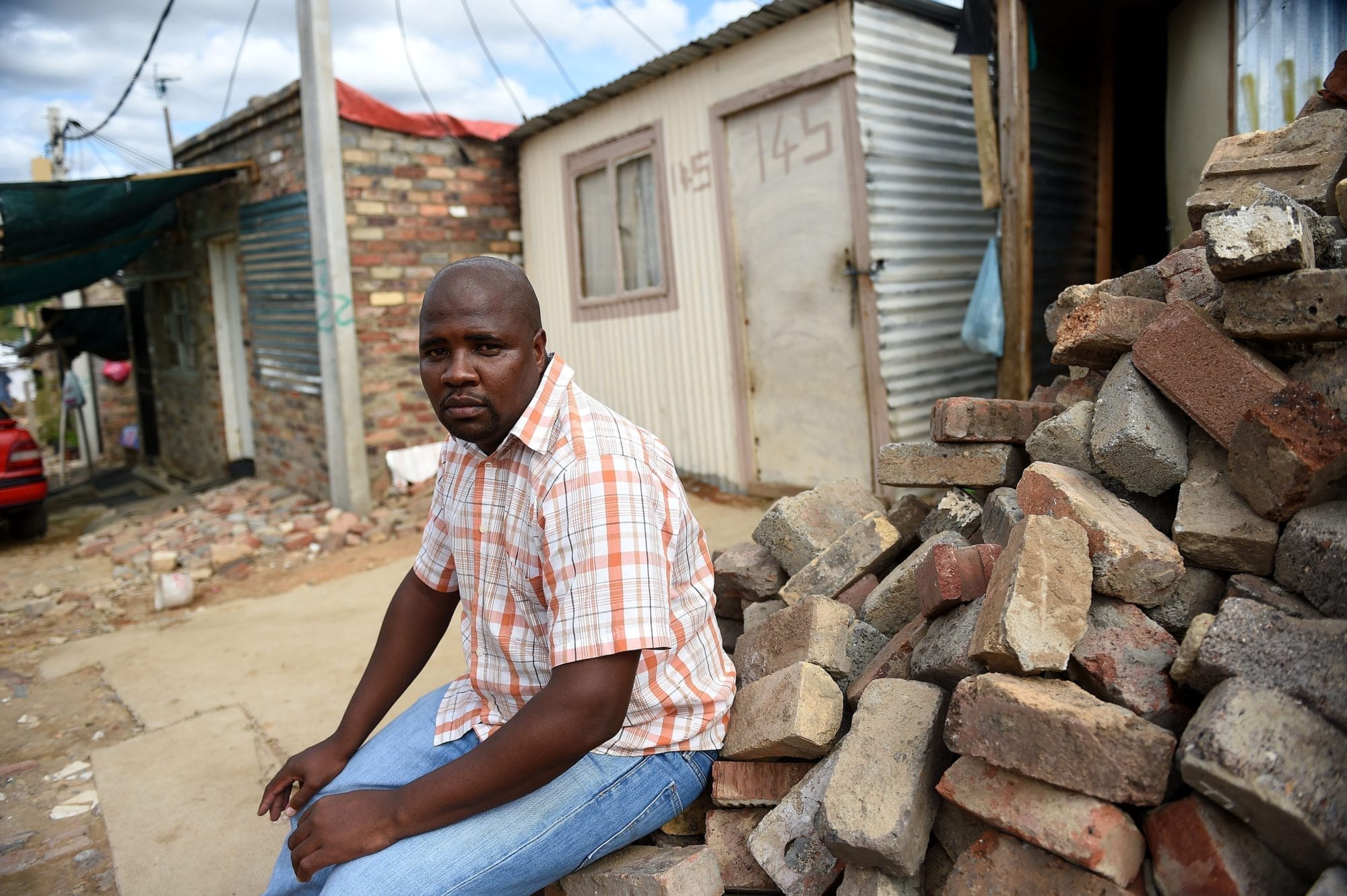
May 14, 2019
As a migrant mine worker from Swaziland, Mduduzi Thabethe says he has fewer workplace rights than his South African co-workers. Although all mine workers pay the same amount into the health fund, migrant workers get inferior care and pensions are rare.
“If you are a citizen of South Africa, you see you are building your country and you have something, but we have nothing.”
Although media and policymakers focus on African migrants to Europe, some 80 percent of African migrant workers remain on the continent.
Thabethe’s union, the Association of Mineworkers and Construction Union, is among those working to improve conditions for migrant workers.
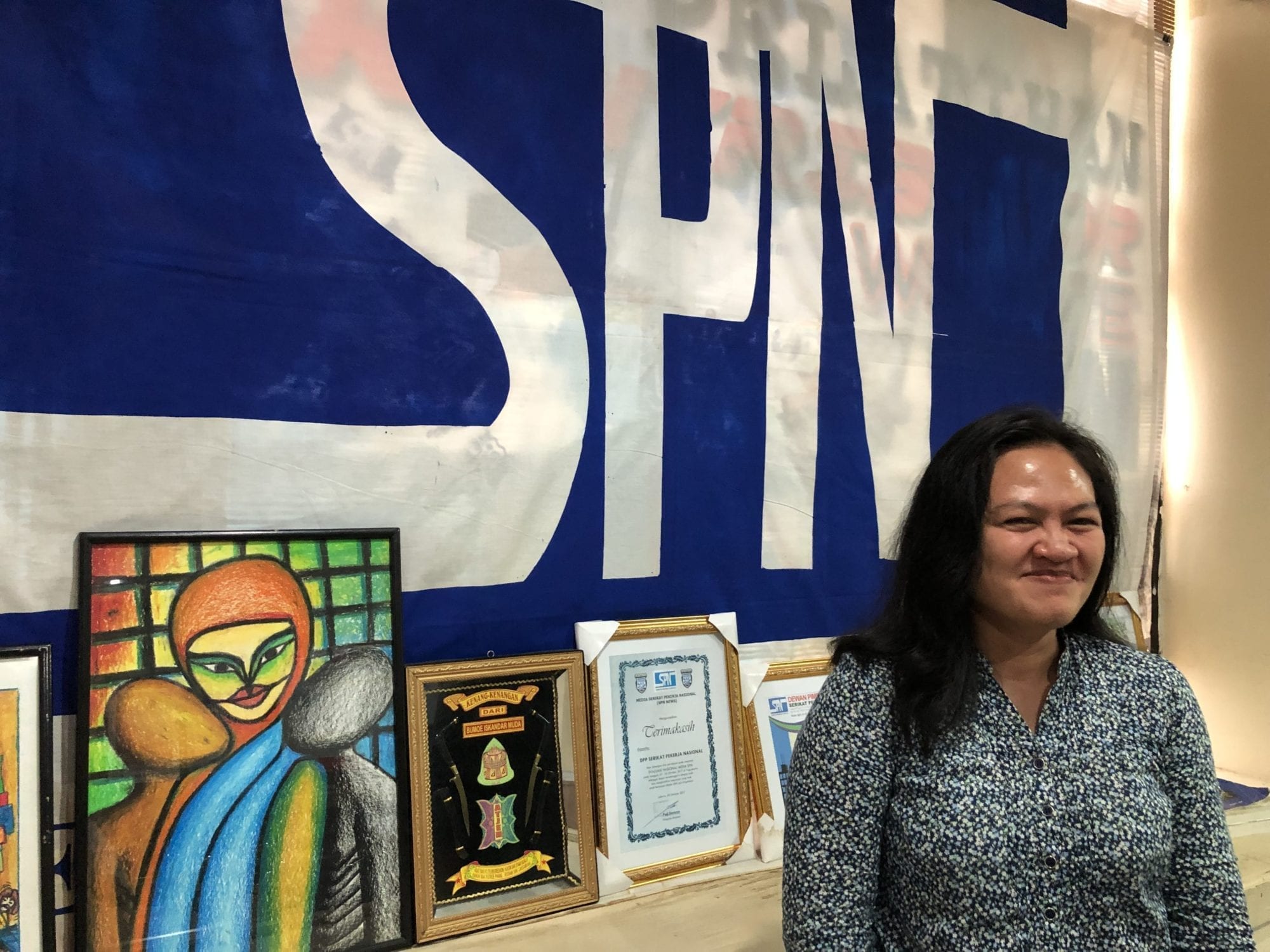
May 9, 2019
Like women around the world, Indonesian factory, farm and office workers frequently face sexual harassment, bullying, rape and other forms of gender-based violence (GBV) on the job—yet many are unaware that anything can be done to address it.
Now, union women leaders in Indonesia are developing unique strategies to educate and empower working women on their rights to safe workplaces free from gender-based abuse.
“This issue is a big issue but it never has been raised up compared with other issues in the union,” says Sumiyati, chairperson for Women and Children’s Affairs at the National Industrial Workers Union Federation (SPN–NIWUF), a Solidarity Center partner.
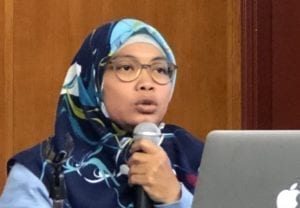
“Unions in the past only focused on economic issues—gender-based violence issues have never been our priority in the past”—Nurlatifah, SPN–NIWUF board member. Credit: Solidarity Center/Tula Connell
“Unions in the past only focused on economic issues—gender-based violence issues have never been our priority in the past,” agrees Nurlatifah, SPN–NIWUF board member.
Sumiyati and Nurlatifah, with support from their union, are spearheading the launch of a six-month pilot project, “Free GBV Zone,” at factories where SPN-NIWUF local unions and employers agree to participate.
At least two factory unions in Jakarta have signed up so far, says Sumiyati, speaking through a translator. Training workers will be a key part of the process, which also involves mapping out the type and amount of gender-based violence at the worksite and working with the union and employer on implementing recommendations to prevent GBV. Essential to the project’s success is setting up a monitoring system to assess the implementation of the recommendations.
Documenting Gender-Based Violence at Work
A 2017 survey by the Indonesian women’s rights organization, Perempuan Mahardika, revealed that 56.5 percent of the 773 women garment workers in a Jakarta industrial complex were sexually harassed.
Yet as elsewhere around the world, comprehensive data is not available on gender-based violence in Indonesian workplaces. Following two Solidarity Center trainings in 2018 in which women garment workers in Yogykarta and Samarang explored the root causes of gender-based violence and discussed the gender-based violence they experienced and witnessed in the factories, the women devised a survey to determine the extent of GBV in the world of work.
The five month in-depth research project project among 105 women factory workers found that of those who had been subject to gender-based violence, 71 percent had experienced it at work. After analyzing the results, project leaders crafted a report they will share with the International Labor Organization (ILO) as well as with unions throughout Indonesia. Now, says Nurlatifah, “the union tries to mainstream this issue into every activity the union conducts.”
The report finds that “fueling gender-based violence in the world of work is a lack of understanding about GBV, few or no regulations protecting female workers from violence and little awareness about violence in world of work by employers, the government and workers.”
‘So Much Violence’
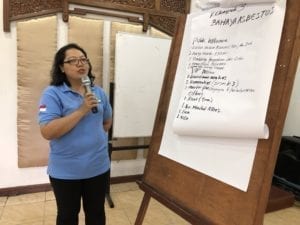
Rita Shalya, KSPI secretary-general, conducts trainings for women workers to ensure they know their rights to a violence-free workplace. Credit: Solidarity Center/Tula Connell
For unions, changing those dynamics starts with awareness training for workers.
“Sometimes women do not understand about gender-based violence,” says Rita Shalya, secretary-general of the Confederation of Indonesian Worker’s Union (KSPI). “Step by step, we try to make them open their eyes about gender-based violence,” she says.
Shalya, who also is vice president of the Pharmaceutical and Health Workers Union (PHWU), has engaged with nurses and other union members in education trainings and follow up through WhatsApp groups to raise awareness of the issue with the ultimate goal of ending gender-based violence at hospitals and health care facilities.
“When I was working in hospital, there was so much violence coming from doctors and coworkers, and also patients,” says Shalya, who experienced such abuse first hand. “It’s very risky in the hospital.”
As a new hospital staff member years ago, Shalya was among six co-founders of a union. Now, she is bringing her deep sense of social justice to focus on ending gender-based violence at work and has an ambitious plan to set up a counseling center for union members experiencing sexual harassment and other forms of gender-based violence on the job. The center will be staffed with union volunteers, all of whom will be trained by the global union Public Services International (PSI).
Shalya has another goal as well: “Women matters are not a big focus of unions, and so I am trying to put it on the agenda.”
Championing an ILO Convention on Gender-Based Violence at Work
Unions in Indonesia also are working broadly at the international and national levels. SPN–NIWUF partners with some 50 organizations and unions in a nationwide campaign seeking government support for an ILO convention (regulation) on gender-based violence at work.
The convention, championed for years by unions and their allies worldwide, including the Solidarity Center, would address violence and harassment at work. In June, workers, employers and governments will negotiate final language on a binding convention and recommendation at the International Labor Conference.
In Indonesia, Parliament “is actively supporting a campaign on gender-based violence because of the work the campaign has done to build consciousness,” says Izzah Inzamliyah, Solidarity Center program officer in Indonesia. The Draft Law on the Elimination of Sexual Violence has drawn a sharp backlash from conservative forces who say it puts too much emphasis on women’s rights, violates religious values and promotes sex outside marriage.
Meanwhile, Indonesia’s official Commission on Violence against Women reports that there are hundreds of discriminatory national and local regulations targeting women.
For unions, addressing gender-based violence at work is “important for creating a working environment free from gender-based violence for our members,” says Sumiyati. A lawyer by training, she worked for years in the color laboratory of a textile plant, where many women discussed with her incidents of abuse at work.
And when women experience safe workplaces, they also will be more likely to become involved in their unions and communities. Sumiyati cites one shoe factory where the majority of its 52,000 workers are women—yet women’s leadership in the factory union is only 16 percent.
“It’s important [for women workers] to understand about gender-based violence so they will be comfortable conducting their activities so they can be safe and be active in taking part in union leadership and the process of making decisions,” she says.
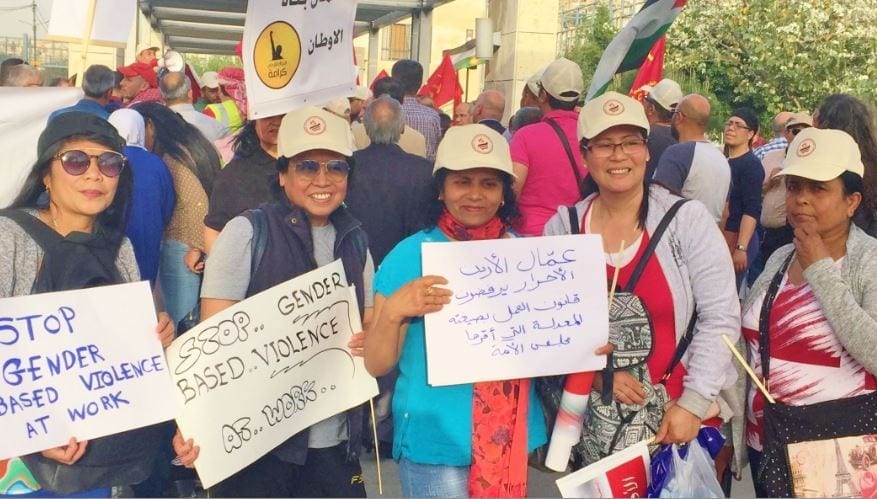
May 7, 2019
From Haiti to Kenya, Nepal and Palestine, hundreds of thousands of workers and their families celebrated International Workers Day last week, honoring the dignity of work and the accomplishments of the labor movement in defending human rights, job stability, fair wages and safe workplaces. Together, workers and their unions are demonstrating their commitment to sustaining and improving worker lives.
Click here for our photo essay of May Day 2019 events by Solidarity Center allies around the globe.
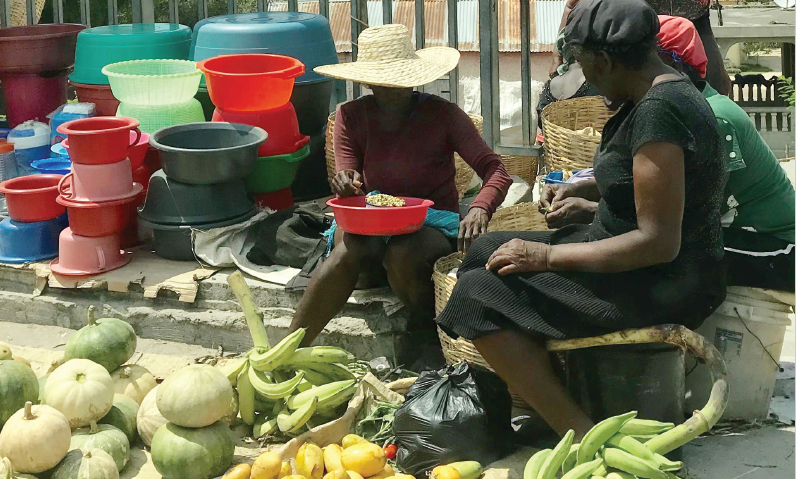
Apr 30, 2019
Haitian garment workers face increasing difficulty in covering basic expenditures as prices soar while wages hover far below the cost of living, according to a new Solidarity Center report.
The High Cost of Low Wages in Haiti (2019), a new Solidarity Center survey tracking living expenses for garment workers from September 2018 through March 2019, shows that the daily minimum wage of 420 gourdes (about $5.07) for export apparel workers in Haiti is more than four times less than the estimated cost of living. Consequently, workers—the majority of whom are women supporting families—are forced to toil longer for less due to diminished purchasing power and are unable to cover daily necessities, including food.
Report recommendations include that government increase the minimum wage to an estimated living wage of 1,750 gourdes per day and allow workers to select their own representatives to the country’s tripartite minimum wage committee.
“Any substantive discussion on democracy in Haiti needs to address the issue of a living wage for Haitian workers,” said Joell Molina, Solidarity Center regional program director for the Americas. “When workers earn enough to meet their basic needs, they can stop focusing on daily survival and shift their energy toward participating in civic spaces to better their communities and enhance their democracy.”
Even though Haiti has incrementally increased the minimum wage since the passage of HOPE II—U.S. legislation qualifying exports for duty-free access to the U.S. market in exchange for factory adherence to international labor standards and domestic labor law, among other criteria—wages have not kept pace with inflation.
The cost of living in Haiti has increased by 74 percent since the Solidarity Center’s last assessment in 2014. Based on the current minimum wage, workers must spend more than half (55 percent) of their take-home pay on work-related transportation and a modest lunch, leaving insufficient funds to cover other necessities. Some workers say they can only afford to eat once per day.
A follow-up to similar cost-of-living surveys conducted in Haiti in 2011 and 2014, The High Cost of Low Wages in Haiti presents pricing data collected across communities in which garment workers are concentrated, including Delmas, La Plaine, Petionville, Tabarre, downtown Port-au-Prince and the airport zone near the Metropolitan Industrial Park. The locally appropriate basket of goods surveyed includes clothing, communication, education, energy, food, healthcare, housing, transportation, water, and savings and discretionary spending.
The apparel industry represents one of the few sources of formal employment in Haiti and provides factory jobs to as many as 52,000 workers. Despite the requirements of HOPE II, the independent monitoring program Better Work Haiti routinely reports rights abuses, including improper payment of wages and benefits, health and safety violations, sexual harassment and repression of freedom of association. In addition to poor working conditions, many workers labor with persistent hunger due to their inability to afford enough food.
Workers in Haiti face daunting obstacles when seeking to exercise their rights to better wages and working conditions. In the 2018 ITUC Global Rights Index, which ranks 142 countries according to 97 internationally recognized indicators to assess the extent to which worker rights are protected in law and in practice, Haiti was found to systematically violate worker rights.
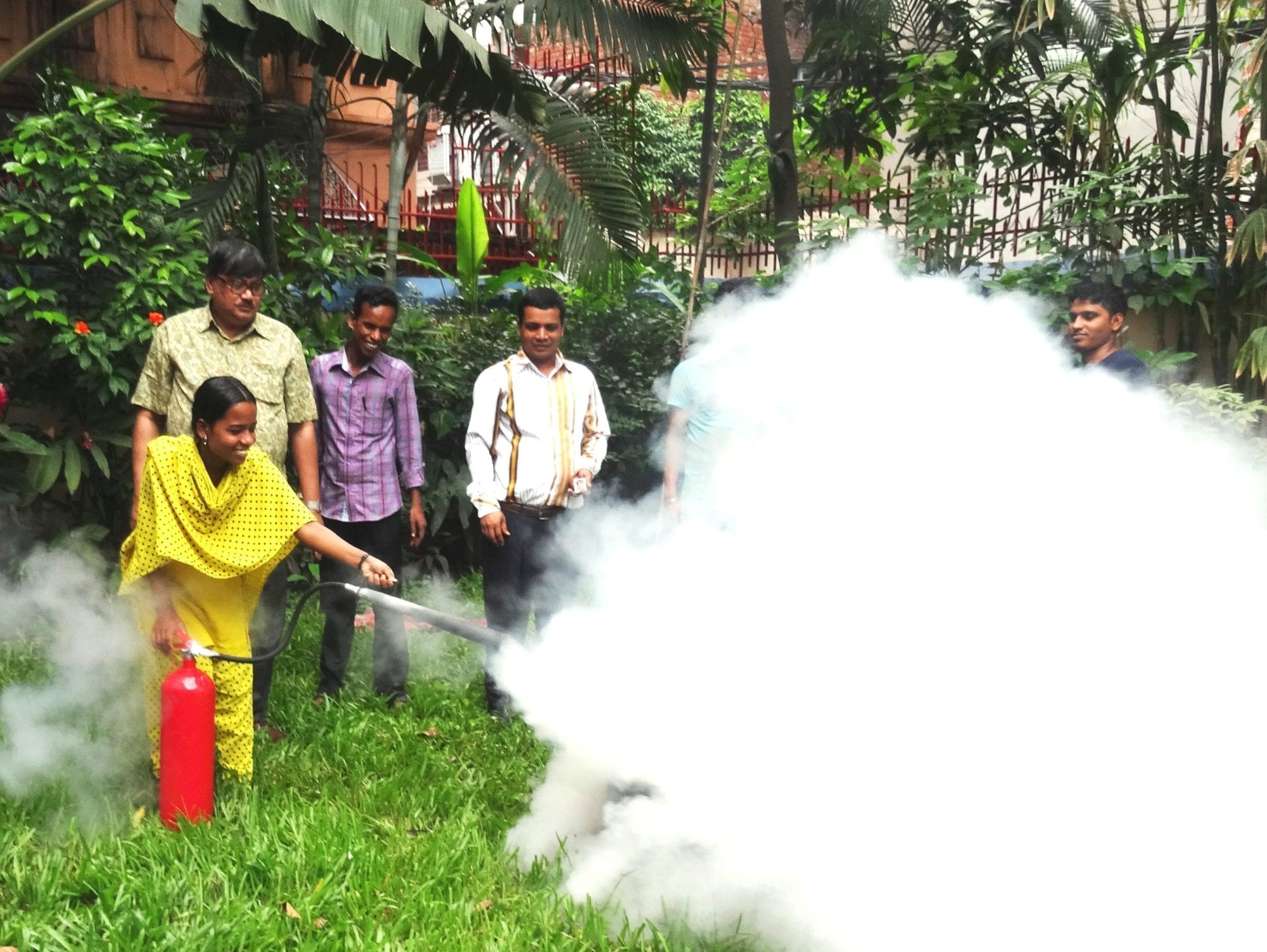
Apr 23, 2019
Six years ago, the preventable Rana Plaza collapse in Bangladesh killed 1,134 garment workers in the world’s worst garment industry disaster. Corporate greed, inadequate labor and building code enforcement, and worker exploitation all contributed to the April 24, 2013, tragedy, which spurred efforts to improve factory safety and support workers seeking a voice on the job.
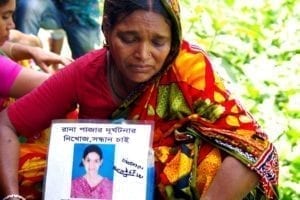
Nurunnahar mourns the loss of her daughter who died in the Rana Plaza collapse. Credit: Solidarity Center/Balmi Chisim
Many survivors still face unemployment and poverty because they are too injured to work, according to an Action Aid survey. Months before Rana Plaza collapsed, a fire at Tazreen Fashions factory killed more than 112 workers, part of a pattern of dangerous conditions and deadly risks garments workers face each day in Bangladesh.
Following Rana Plaza, Bangladesh has seen important international and domestic efforts to address fire and building structure risks and improve the labor conditions that hinder workers from reporting dangerous working conditions and violations, and exercising their labor rights. Initiatives like the Bangladesh Accord for Fire and Building Safety, a binding agreement involving fashion brands, unions and the government that helped make many garment factories safer, fueled a rise in union organizing.
And through worker education, like the Solidarity Center’s Fire and Building Safety program, garment workers are boosting their capacity to identify safety and health problems at the workplace and learn about their right to join together to ensure safe workplaces by taking collective action to resolve problems.
6,000 Garment Workers in Solidarity Center Fire Safety Trainings
More than 6,000 Bangladesh garment workers have participated in Solidarity Center safety programs in recent years, including Shilpi Akter, who has worked in the garment industry for more than 10 years.
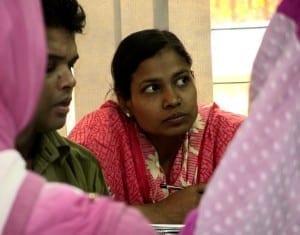
Some 6,000 Bangladesh garment workers have taken part in Solidarity Center fire safety trainings. Credit: Solidarity Center/Balmi Chisim
“Before the Rana Plaza incident, there were no sprinklers, fire doors or emergency lights in our factory,” she says. “I had no idea what fire or health and safety at work meant, neither did we have any trade unions or safety committees.
“Through Solidarity Center’s fire safety training, I learned how to use a fire extinguisher, how to be safe from the fumes during a fire accident, and that I must not keep the clothes I stitch near the heated motor of the machine. This knowledge was unknown to me even a few years back.”
Bilkis Begum, a garment worker and a union president, says before Rana Plaza, “we handled the toxic chemicals without any precaution and had no idea on what to do in case of a fire accident except to run.”
Mohammed Ronju paints the incident more starkly. “There would be no Rana Plaza if it had a union,”’ says Ronju, who has worked in the garment industry for 15 years. If workers had a union, they “would not go inside the building when they sensed trouble. They would have strongly resisted the pressure from management to go inside a building about to collapse.” The day before the Rana Plaza disaster, building engineers declared the structure unsafe. Yet managers threatened to withhold wages if workers did not show up for work the day Rana Plaza collapsed.
‘No More Rana Plazas’
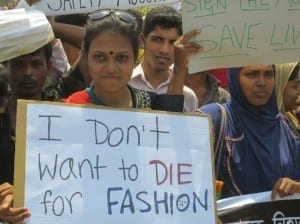
Each year, tens of thousands of Bangladesh workers rally on the anniversary of the Rana Plaza disaster to demand safe working conditions. Photo: Solidarity Center/Sifat Sharmin Amita
The Rana Plaza tragedy prompted international efforts, through the Accord and other mechanisms, to ensure dangerous garment factories were closed or repaired and safety measures instituted. As a result, factory compliance with fire and building safety codes has improved. Yet much more work remains to be done to ensure full compliance with basic fire and building safety and occupational health standards, and to guarantee enforcement of fundamental labor laws, including workers’ right to form unions.
Since November 2012, at least 1,304 Bangladesh garment workers have been killed and at least 3,877 injured in factory fires and other workplace incidents, according to data compiled by the Solidarity Center.
All the more reason, experts say, the Bangladesh government must not roll back international safety inspections.
Says Bilkis Begum: “Surely, we all would agree that it should never be the case that we could sacrifice another Rana Plaza to complete the remaining task of making the workplace safe for the garment workers of Bangladesh.”










